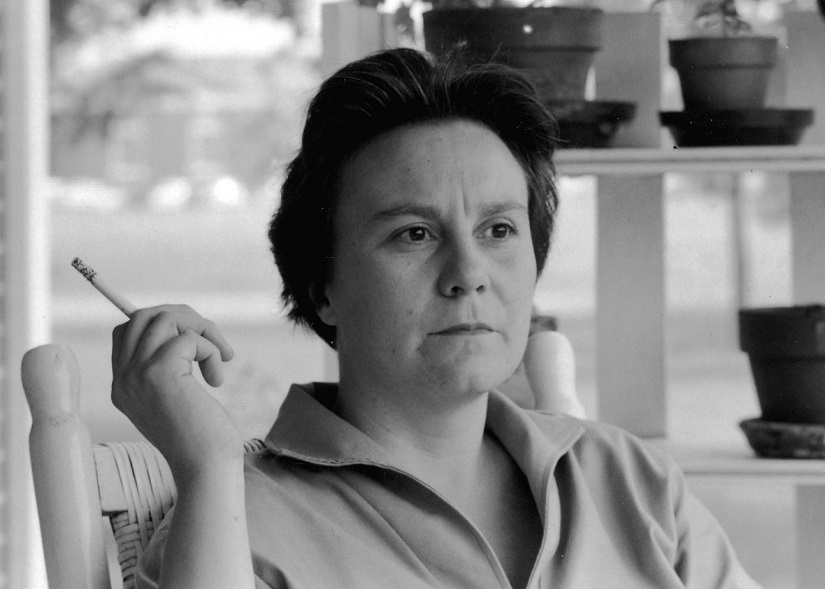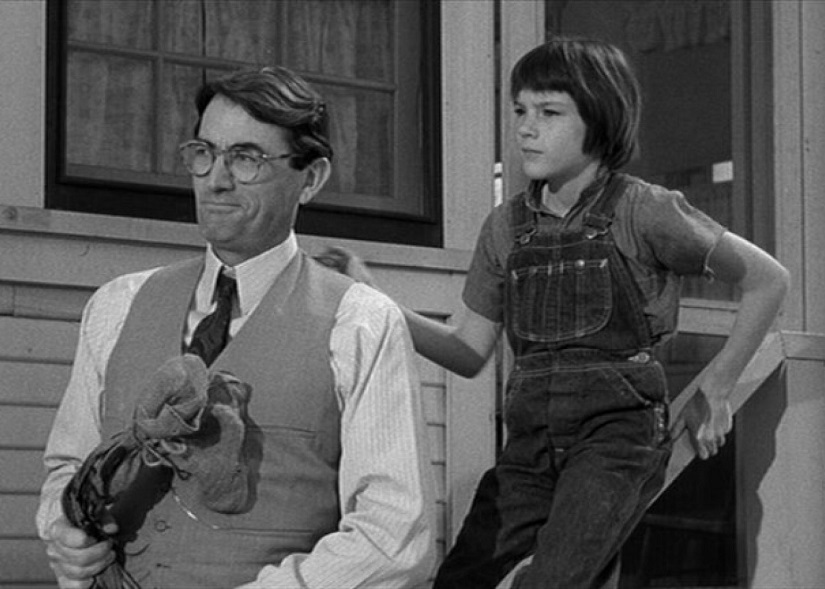The circumstances surrounding the publication of Go Set A Watchman have been sufficiently well documented and debated that there seems little need to retread that ground here. Whether or not you choose to buy the book as a result of its questionable journey into print is one best left to your own conscience rather than a thousand words of a reviewer wrestling with his. The core matter to be dealt with is simply whether or not it is a worthwhile book. My answer would be an emphatic yes.
It must be noted that it is also a tremendously challenging book, a long way from the moral simplicity of To Kill A Mockingbird, the novel it was later redrafted into but to which it now serves as a pseudo-sequel. Much has already been written about Atticus Finch being revealed as holding pro-segregationist views – with, as might have been expected, plenty of people popping out of the internet woodwork to let everyone know it was obvious to them all along, even if they didn’t say anything at the time – and Scout, here known by her birth name of Jean Louise, struggling to deal with the idea of her father not being the paragon of virtue she had long looked up to.
That’s not the challenging part, however. What is fascinating about Watchman is that, despite being written and set in the 1950s, its concerns are startlingly contemporary. Its themes cover the expected ground related to family, racism and the humanisation of childhood idols, but also moves through the politics of identity, class and privilege. Not all of these are given the same weight, understandably, but that they are tackled at all strips the book of Mockingbird‘s fairytale quality, which allowed various problematic elements to go ignored or dismissed as simply representative of their time, and roots it in something much closer to realism. Considering that such issues continue to disunite the States today, the change is an essential one for times where a reassertion of homespun values simply won’t do.
It’s difficult to say whether the book can be enjoyed on its own terms because it exists, both textually and thematically, in such stark opposition to Mockingbird. Whomever advised author Harper Lee to rewrite Watchman into that novel was a genius for recognising the elements which bore all the hallmarks of a best-seller, but in light of this new publication, should also be admonished for allowing its complexities to be so diminished. Where Mockingbird took a very clear and firm moral stance, Watchman takes the altogether more difficult but honest route of reminding us that it is dogmatic zealotry on both sides, and the dehumanisation and comforting vilification of those who disagree with one’s views, which is often the real obstruction to progress.
Make no mistake, Atticus’ views are, by today’s standards and, I suspect, possibly even to some people in Lee’s time, stomach-churning. A lengthy monologue in which he lays out his thoughts on how ‘[…] the Negroes down here are still in their childhood as a people’ is brutal, and Jean Louise’s anger, in light of her own, more modern views, becomes not only understandable but energizing. As thrilling as it is to revel in her takedown of her father’s prejudices, however, Lee’s point is not affirm one side over the other, but to emphasize the importance of communication and understanding even between those whose politics could not be more diametrically opposed. As long as people only seek to validate their own opinions, Lee suggests, and surround themselves with those who agree with them while demonising all who don’t, the only result can be the ugly stalemate of each side sniping impotently at each other from afar.
Atticus’ thoughts on segregation may be difficult to read, but Jean Louise’s conversations with both him and the other people of Maycomb reveal her initial generalisations to be no less simplistic. While her views on integration are more acceptable to most modern audiences, she in her own way is no less patronising and close-minded than she accuses others of being. For all her noise and fury at Atticus, she has little interest in the thoughts of those affected by segregation – the ageing Calpurnia is the only black person given much of a voice, even then confined to a solitary scene where her function is to console the anguished white girl – and, until the very end, outright refuses to listen to anyone who challenges the fixed worldview through which she defines herself.
Having spent the years since Mockingbird living in New York, the pouty resilience of the young Scout has mutated into the self-righteousness of a prototypical East Coast lefty. One gets the feeling that had the older Jean Louise been present at the Tom Robinson trial, which is given a brief mention and notable retcon, she’d have been quick to label her father a misogynistic rape apologist. That she later gets called a bigot (a turnip-sized one at that) by her conservative uncle is bound to ruffle a few feathers in view of her stance against segregationism, but rationally the essential point is hard to argue with. The wisdom of Watchman is not coming down on one side or the other, but as a reminder that rapprochment and honest conversation are the only ways out of America’s historical holding pattern of racism and hate.
As for the rest of the book, the prose is adequate but largely uninspired, not above occasionally slipping into facepalm-worthy clichés – particularly a real stinker of a chapter closing line about colour-blindness – and lacking the rhythm and small linguistic graces which grow out of considered editing. The plot is barebones at best, conducted largely through a series of didactic conversations which only spring to life once the novel’s themes take shape in later chapters. Brief flashbacks to Jean Louise’s childhood are oases of humour and sweetness, but whilst on their own terms show how the innocently naive Scout laid the roots for the ideologue of later life, readers familiar with Mockingbird will find little new contained within.
The book’s politics are so dominant, however, that how one interprets them will likely be the decisive factor in whether Watchman is deemed a worthy successor, of sorts, to its esteemed forebear. Already you only need put the title into Google to see how quick commentators have been to twist Lee’s message of unity into one affirming their own views and prejudices – precisely what the text clearly warns against. That complexity and empathy is what makes it an important and essential second entry in Harper Lee’s literary canon. Mockingbird may be the more refined and comforting read, but for all Watchman‘s many rough edges, it does what any good sequel should by expanding the perspective of the original into something richer, braver and wiser, dare I so blaspheme by even suggesting, better. The true mark of its success is perhaps that, even with the contentious nature of its publication hanging over it, it nevertheless proves itself worthy of celebration.


